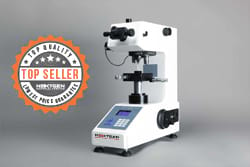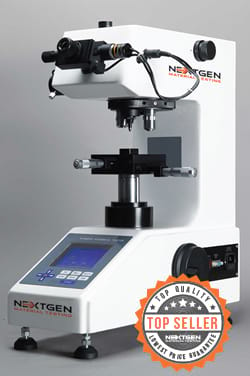
Analogue Hardness Testers and Why They are Cost-Effective Alternatives for Manufacturing
It is an axiom in manufacturing that the reliability and overall quality of a product is dependent on the quality of its components. Factors like resistance to deterioration, ductility, and strength tells will determine whether a certain treatment is suitable for the purpose at hand.
These factors are not readily visible to the naked eye, manufacturers would rely on the readings given by a hardness tester. As of now, machines like an Analogue Vickers Hardness Tester are preferred in testing materials and treatments. Often, these types of machines are able to perform exceptionally within a given parameter which ultimately helps optimize manufacturing costs in the long term.
Why Choose Analogue Testers?
Given the recent technological improvements, it is apparent for a manufacturer to choose devices with digital readings. In manufacturing, this is not exactly the case. The reliability of the machine itself is an important factor in hardness testing. This is where analogue devices still put up a good fight relative to their digital counterparts.
To better understand this, it is best to learn how analogue and digital hardness testers actually come up with their measurements. Digital devices get their readings by converting electronic signals into a finite set of numbers. In most cases, digital output is free from observational errors. You can easily get the readings they are looking for without interpreting what the meter is indicating.
Analogue devices, on the other hand, get their readings through physical interaction with the material in question. Once a material is placed inside a tester like the Analogue Knopp Hardness Tester, various meters will gauge it in a number of hardness factors. It takes skill to read what these devices put out as there are a series of numbers on the device’s scale.
But why is analogue reading is sometimes preferred in hardness testing? Here are three distinct reasons why.
1. Digital Devices are Reliant on their Electronic Circuitry – If the internal systems of these devices are compromised through repeated use or are faulty from the very beginning, the values they put out will be very erratic or incoherent. Either way, the device becomes unreliable, even useless to the tester.
2. Digital Devices are Vulnerable to Ambient Elements – In instances when they have to work on highly humid workplaces, these devices would be exposed to the buildup of moisture. This will ruin their internal processing systems.
The problem is more pronounced in workplaces where there is a considerable presence of highly reactive or corrosive materials. For instance, the presence of particles like salt and dust in the air could enter into the instrument through any opening and would eventually hamper its ability to process information accurately.
3. Analogue Devices Do Not Need Constant Re-Calibration – Once an analogue hardness tester has been adjusted for a specific purpose, it will constantly produce output on the given parameters so as long as it’s internal mechanical systems are functional.
With digital devices, the readouts are less dependable due to their sensitivity. There are even instances when the instrument would show some readings even if the parameters have yet to be set for that test.
How to Choose an Analogue Hardness Tester

Every hardness tester out there was designed to perform under specific conditions and parameters. As such, there are only a handful of testers in the market right now that can be compatible with what you need. As such, there are several considerations you have to keep in mind when choosing an instrument.
1. Your Budget
The most basic consideration you have to remember is your available budget. At best, you only need to have the most suitable hardness testers in the market given your budget and the types of tests that you are going to conduct.
An additional benefit that analogue devices have is that they have competitive prices than their digital counterparts. Given their components, devices like an analogue Knopp Hardness Tester tend to fetch lower or reasonable prices in the market while still giving out relatively dependable performance outputs.
2. Costs and ROI
Aside from the initial price you have to pay to get these testers, you should also consider the return of investment. What is the expected impact that instrument would have on your production? Will there be a significant reduction in costs in the long run if you decide to invest on these instruments?
Aside from the financial aspect, you should also look at the operational aspect of the costs. A good hardness tester should allow you to increase the yield of your manufacturing process as well as production throughput. Aside from that, the efficiency of the “human” aspect of your processes I.e. the Operators should also increase.
3. The Material and the Test
The rule of the thumb here is that the analogue hardness tester of your choice should match the materials they are going to process. This could be as simple as determining the kind of material or component to be tested as well as the size, weight, and dimensions of the sample. You should also consider the quantity of these samples to be tested every day as not all hardness testers were designed for constant, hourly use.
Another point to consider is the nature of the test itself. Has the test point been difficult to reach with your current testing equipment? Alternatively, how knowledgeable are the operators when conducting these kinds of tests? How you will answer these determines whether that hardness tester is suitable for your needs or not.
4. Errors
Even with the best machines in your facility, you cannot fully eliminate errors from the equation. Errors can come from the machine itself or the person operating it. As such, it is best that you conduct a Gage Repeatability and Reproductibility (Gage R&R) Test to determine how much of an error can be attributed to either man or machine.
What you will have to keep in mind is that there is a difference between the performance of each hardness tester and operator. A difficult job for one tester might be easier for another. As such, you should look for a tester that can be compatible with different tests and can process different samples, regardless of size and shape.
In Conclusion
The type of instruments you use for your tests will determine the kinds of benefits your entire production process can enjoy from such an inclusion. As such, choosing the right analogue Vickers hardness tester will be the key to ensuring optimum production output as well as minimizing operational costs. All that you have to remember is that the tester, the test, and the materials to be tested on will are a suitable match for each other.